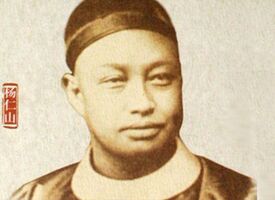Yang Wenhui
| PersonType | Category:Chinese Buddhist Teachers Category:Translators |
|---|---|
| FirstName / namefirst | Yang |
| LastName / namelast | Wenhui |
| MainNamePhon | Yang Wenhui |
| SortName | Wenhui, Yang |
| bio | Yang Wenhui. (J. Yō Bunkai; K. Yang Munhoe 楊文會) (1837-1911). Chinese Buddhist layman at the end of the Qing dynasty, renowned for his efforts to revitalize modern Chinese Buddhism. A native of Anhui province, Yang fled from the Taiping Rebellion to Hangzhou prefecture. In 1862, he serendipitously acquired a copy of the Dasheng qixin lun ("Awakening of Faith According to the Mahāyāna") and became interested in Buddhism. In 1878, he traveled to England, where he served at the Chinese Embassy in London, befriending the Japanese Buddhist scholar Nanjō Bun’yū (1849-1927), who helped him to acquire Chinese Buddhist texts that had been preserved in Japan. After his return to China, Yang established a publishing press called the Jingling Kejing Chu and published more than three thousand Buddhist scriptures. In 1893, Anagārika Dharmapāla visited Yang in Shanghai. In 1894, Yang and the British missionary Timothy Richard translated the Dasheng qixin lun into English. In 1907, the Jingling Kejing Chu began to publish primers of Buddhism in various languages. In 1910, Yang also founded the Fojiao Yanjiu Hui (Buddhist Research Society), where he regularly lectured until his death in 1911. (Source: "Yang Wenhui." In The Princeton Dictionary of Buddhism, 1022. Princeton University Press, 2014. http://www.jstor.org/stable/j.ctt46n41q.27.) |
| YearBirth | 1837 |
| YearDeath | 1911 |
| BornIn | Anhui province |
| Other wikis |
If the page does not yet exist on the remote wiki, you can paste the tag |

